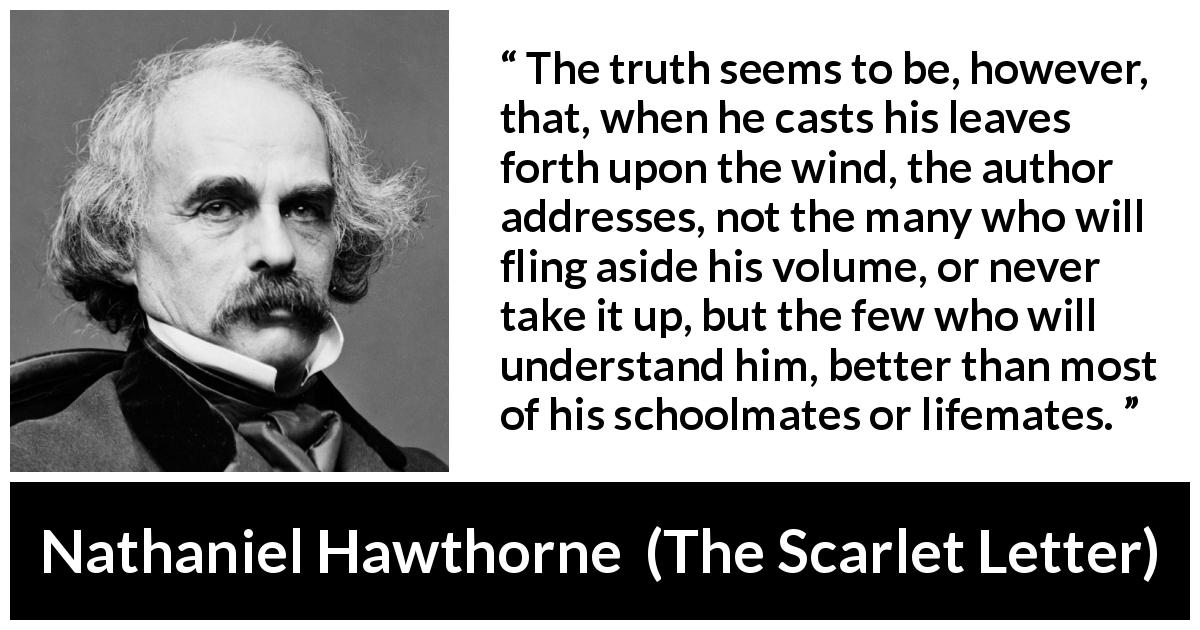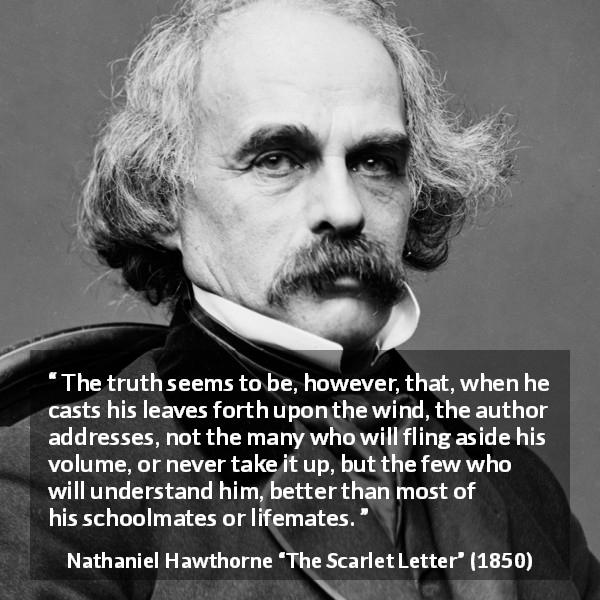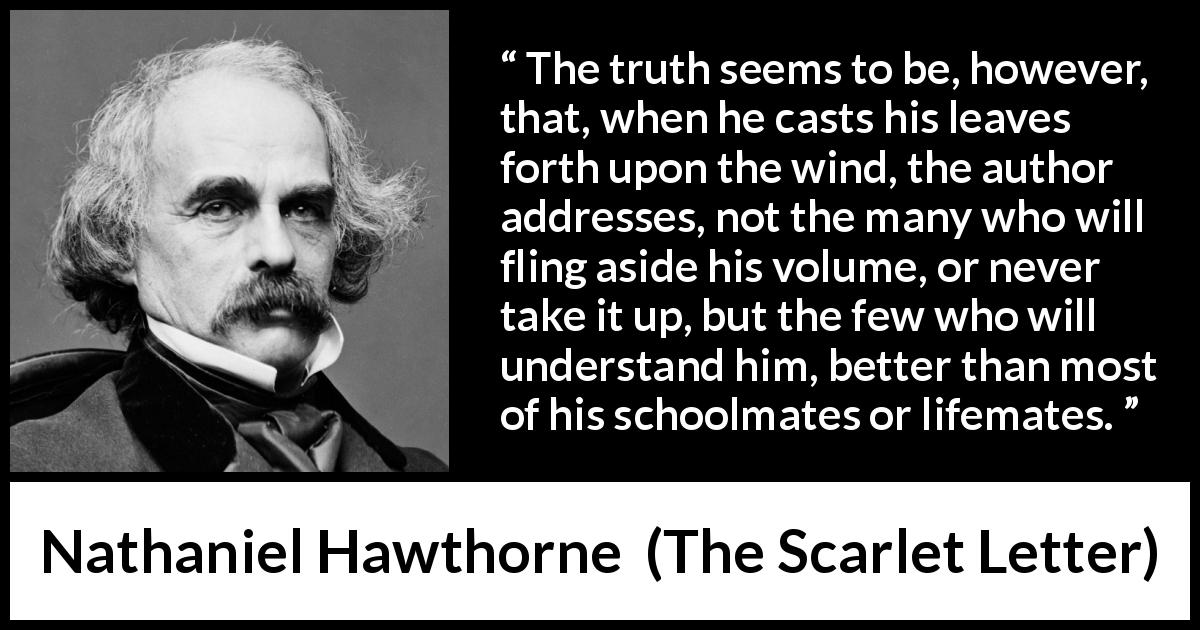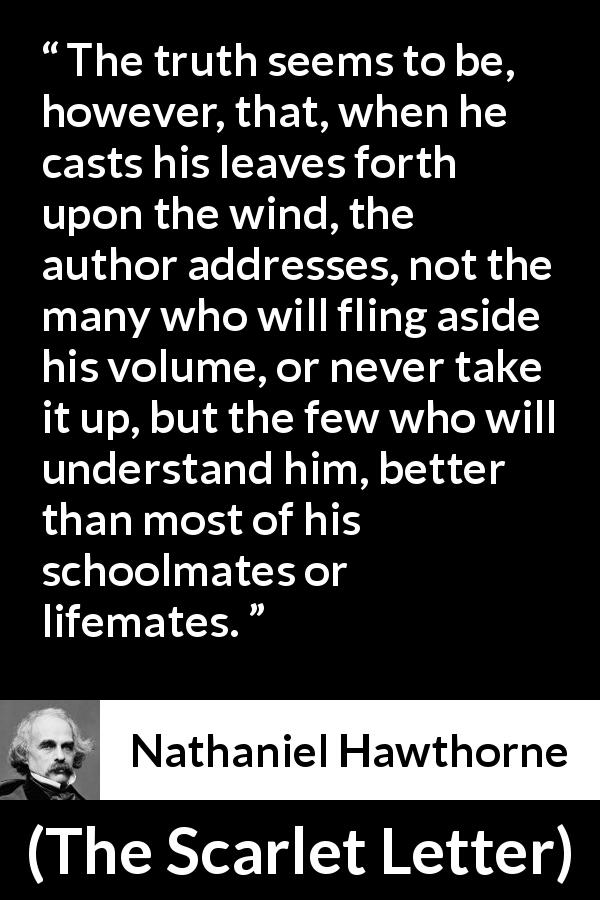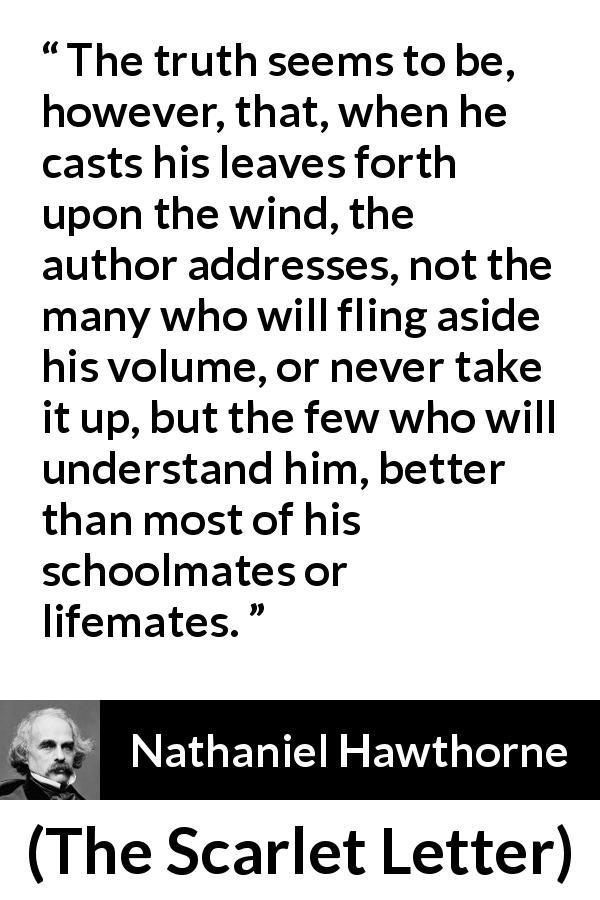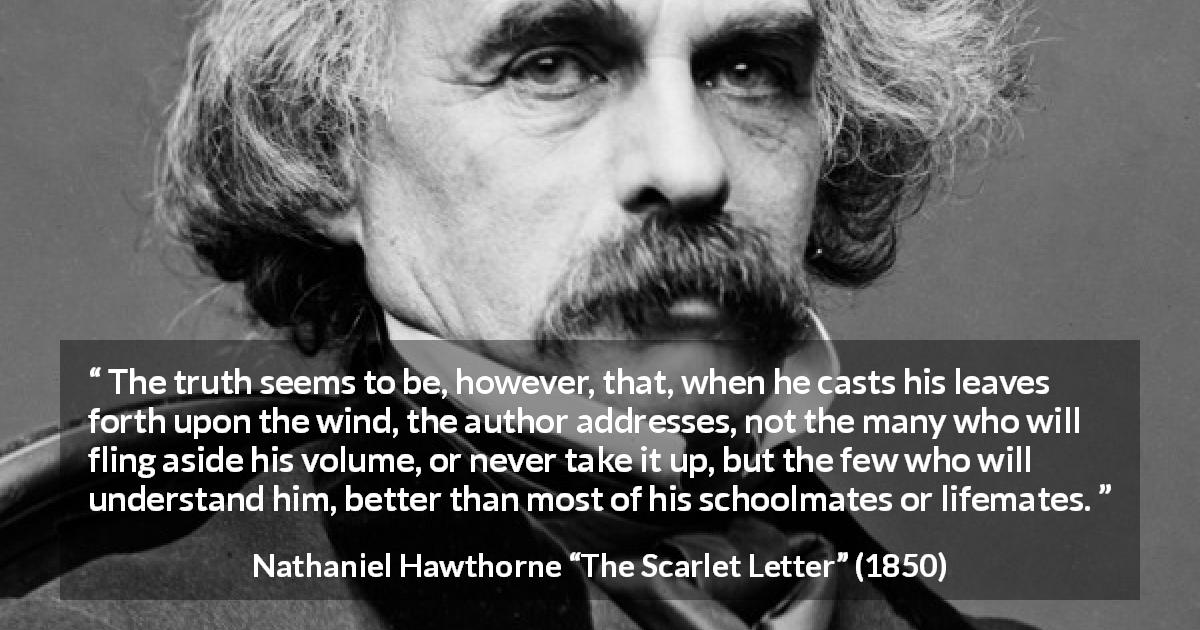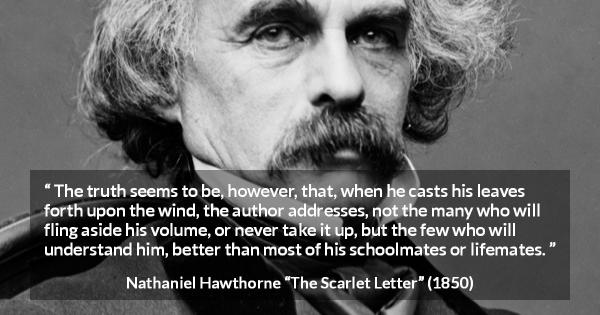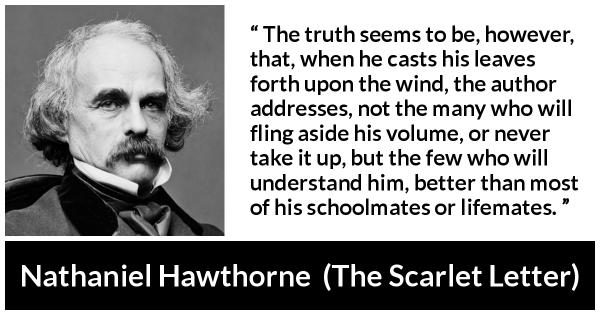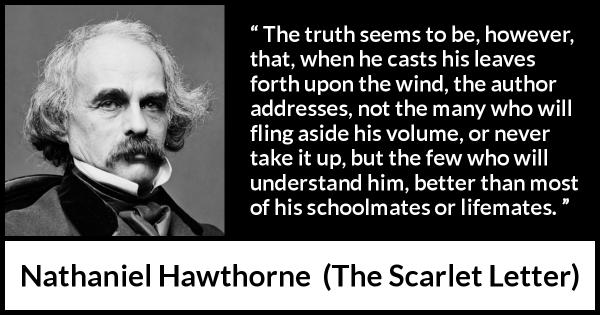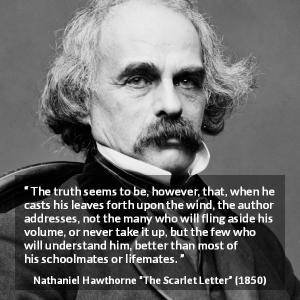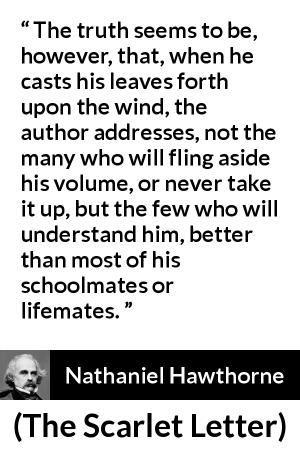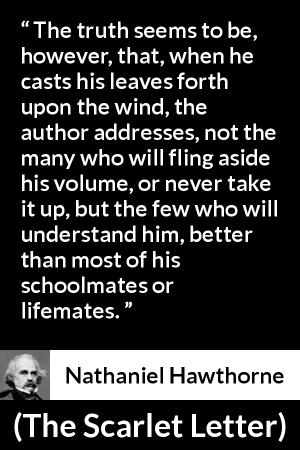“ The truth seems to be, however, that, when he casts his leaves forth upon the wind, the author addresses, not the many who will fling aside his volume, or never take it up, but the few who will understand him, better than most of his schoolmates or lifemates. ”
Nathaniel Hawthorne, The Scarlet Letter (1850). copy citation
| Author | Nathaniel Hawthorne |
|---|---|
| Source | The Scarlet Letter |
| Topic | understanding writing readership |
| Date | 1850 |
| Language | English |
| Reference | |
| Note | |
| Weblink | http://www.gutenberg.org/files/25344/25344-h/25344-h.htm |
Context
“And now—because, beyond my deserts, I was happy enough to find a listener or two on the former occasion—I again seize the public by the button, and talk of my three years' experience in a Custom-House. The[2] example of the famous «P. P., Clerk of this Parish,» was never more faithfully followed. The truth seems to be, however, that, when he casts his leaves forth upon the wind, the author addresses, not the many who will fling aside his volume, or never take it up, but the few who will understand him, better than most of his schoolmates or lifemates. Some authors, indeed, do far more than this, and indulge themselves in such confidential depths of revelation as could fittingly be addressed, only and exclusively, to the one heart and mind of perfect sympathy; as if the printed book, thrown at large on the wide world, were certain to find out the divided segment of the writer's own nature, and complete his circle of existence by bringing him into communion with it.”
source
